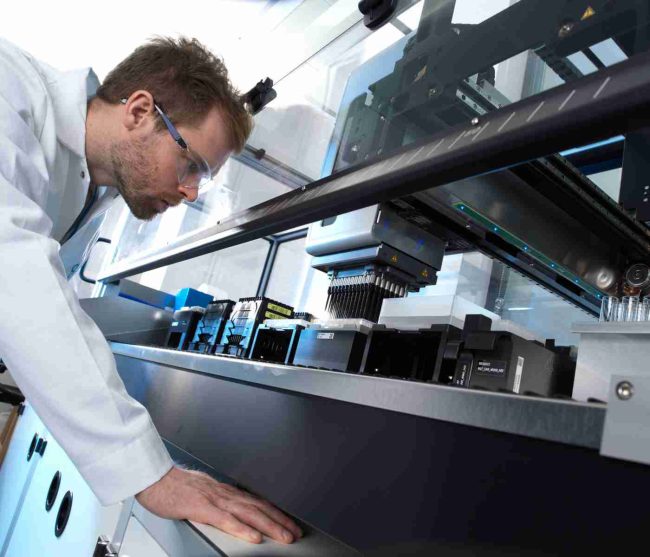High Throughput discovery and molecular informatics
The diversity of biological, chemical and physical properties that naturally occurring proteins achieve are astounding.

The same can be said of the products of human driven chemical synthesis efforts, which have yielded the catalysts, pharmaceuticals, and materials that shape our modern world. Surprisingly few chemical reactions have been used by chemists and biologists to explore the utility of ‘synthetic biologics’ in earnest; a consequence of most research being principally driven by a human and thus ‘limiting’ and ‘slowing’ this endeavour. We are developing strategies for a fully diverse protein and polypeptide synthesis program through the combination of high throughput discovery using automated liquid handling and detection approaches including a range of cellular phenotype screenings (FACS, high-content confocal, robot-assisted selection, antibiotic potentiators with culture imaging) as well as classical analytical approaches such as MS and NMR. This work is augmented with AI tools to aid experimental design as well as data deconvolution and we are developing feedback approaches to allow rapid iterations.




